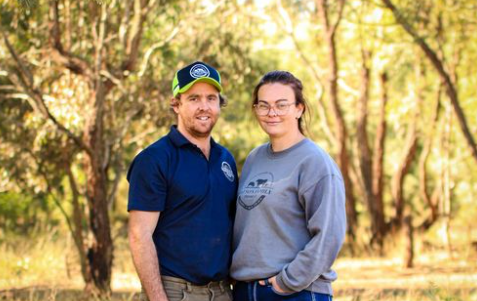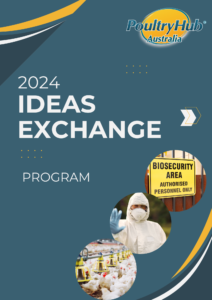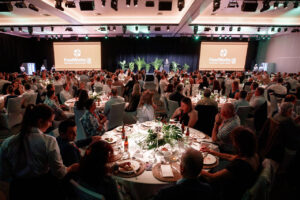In a highly engaging Community of Practice (CoP) webinar for smallholder poultry farmers, experts and farmers alike shared crucial insights on biosecurity, particularly in the wake of recent Salmonella Enteritidis outbreaks. The event, attended by participants online, focused on the challenges faced by smallholders and offered practical guidance on disease prevention. Among the notable speakers were two Queensland-based pastured egg farmers, Hayley and Matt, as well as Dr. Isabelle Ruhnke, a poultry veterinarian from Germany, Joanna Blunden (NSW DPI) and the Director of Poultry Hub Australia Tamsyn Crowley.
Hayley and Matt, two small-scale pastured egg farmers from Queensland, kicked off the discussion by sharing their experiences with a Salmonella Enteritidis outbreak that affected their farm. Hayley spoke about the shock of discovering Salmonella in their flock and how it turned their operation on its head. “We thought we were doing everything right,” she explained. “Our hens had space to roam, and we followed biosecurity measures as best we could, but the outbreak showed us there were gaps we hadn’t accounted for.” When Salmonella Enteritidis struck, they quickly realised that biosecurity had to be more rigorous. “The outbreak was a wake-up call,” Matt admitted. “We needed to rethink everything from how we managed foot traffic to controlling wild birds around the farm.”
Both farmers agreed that pastured systems face unique biosecurity challenges, particularly in controlling environmental factors. They shared how they’ve since implemented stricter disinfection protocols, more rigorous staff hygiene measures, and new strategies for keeping wild birds away from their flocks.
Following the farmers’ stories, Dr. Isabelle Ruhnke, a highly respected poultry veterinarian from Germany, emphasised that Salmonella Enteritidis is not just a problem for large-scale farms—smallholders are equally at risk. “Biosecurity isn’t just a response to an outbreak; it’s a daily practice,” Dr. Ruhnke explained. She outlined several key steps smallholder farmers should take to reduce their risk. Dr. Ruhnke also highlighted the importance of keeping a close relationship with local veterinarians to monitor flock health and receive early warnings about potential disease outbreaks in the region.
Joanna from NSW DPI rounded out the session by discussing how the CoP is actively supporting smallholder farmers in their biosecurity efforts. “We understand that smallholders face unique challenges, especially those operating free-range systems like Hayley and Matt,” the Director said. “That’s why we’re developing tools and resources specifically for them.”
The webinar concluded with a Q&A session, during which participants asked about striking a balance between sustainable farming and robust biosecurity. The consensus was clear: while smallholder systems may have inherent challenges, farmers can still protect their flocks with vigilance, ongoing education, and collaboration.
Both Hayley and Matt stressed the importance of learning from the experiences of others. “Being part of a community like this is invaluable,” Hayley said. “We don’t have to face these challenges alone.”
The webinar reinforced that biosecurity is an evolving practice, and with the right tools and support, smallholders like Hayley and Matt can continue to provide safe, healthy products without compromising the welfare of their flocks.
As more smallholder farmers embrace the CoP platform, the future looks brighter for poultry farmers striving to strengthen their biosecurity measures and protect their businesses from the risks posed by pathogens like Salmonella Enteritidis.




